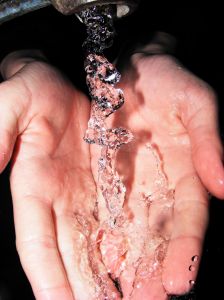 Whether it’s from your mom or a message on a poster in your employer’s restroom, you hear it all the time: Wash your hands after using the bathroom and before eating. Use soap and hot water. And make sure you wash your hands long enough to kill the germs lurking on them.
Whether it’s from your mom or a message on a poster in your employer’s restroom, you hear it all the time: Wash your hands after using the bathroom and before eating. Use soap and hot water. And make sure you wash your hands long enough to kill the germs lurking on them.
You might think that doctors of all people would know the rules of hand washing, right? Wrong, at least according to a recent study discussed in Time Magazine. The report indicates that an alarming number of medical students may not know everything there is to know about hand washing despite engaging in the practice of medicine and regularly assisting in operating on patients.
Researchers at a German med school surveyed 85 medical students who were about to enter clinical training – the stage where they first begin to interact with actual patients. The med students were given seven scenarios, five of which required hand washing: before contact with patients, before preparing IV fluids, after removing gloves, after contacting patients’ beds and after contact with vomit (the other two scenarios did not require hand-washing).
Unfortunately, the doctors didn’t do so well on the test. Only 1 in 5 students correctly identified what to do in all seven situations. Just 1 in 3 got all five hand-washing scenarios correct. Most students knew that they were supposed to wash their hands before contacting a patient, after touching their bed and after contacting vomit, but 15% to 20% could not correctly identify the other two hand-washing situations.
What does this mean for you? Improper hand washing by physicians is a leading cause of spreading germs and contagious diseases from one patient to another in North Carolina. This is because much of a doctor’s job involves direct physical contact with patients. Thus, doctors who conduct surgery on someone with one disease and then don’t properly wash their hands, could easily spread germs and cause infection once their hands come into contact with new patients.
Because doctors are professionals, they are expected to know more than ordinary individuals about the specific safety requirements involved in practicing medicine. When a professional, like a doctor, falls below the standard of care required in their profession, such as proper hand washing procedures, those professionals can be held liable for injuries and damages caused by their lack of care.
If a doctor does something that is not in accordance with the requisite standard of care then that doctor may have engaged in medical malpractice. If you or some you know has become sick or injured because of a doctor falling below the required standard of care, you need the help of Charlotte personal injury attorneys experienced in medical malpractice to help protect your rights and recover damages for your injury. Do not hesitate to contact the attorneys at Arnold & Smith, PLLC at 704-370-2828. We will work tirelessly to ensure that you get the justice you deserve.
See Our Related Blog Posts:
Federal Government Invokes Sovereign Immunity in STD Lawsuit
 Charlotte Injury Lawyers Blog
Charlotte Injury Lawyers Blog

